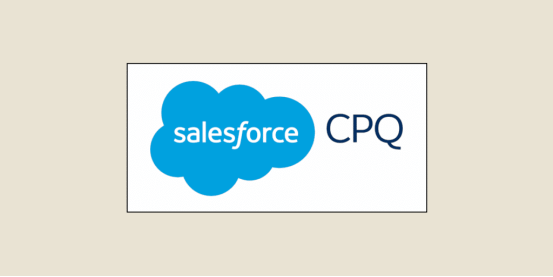A Complete Guide to Salesforce CPQ Software Integrations
Salesforce CPQ (Configure, Price, Quote) is a powerful platform built to work seamlessly with other business systems, helping organizations streamline and enhance their sales operations. This guide explains how Salesforce CPQ integrations function, their key benefits, and how companies apply them in practice.
Salesforce CPQ (Configure, Price, Quote) is a powerful platform built to work seamlessly with other business systems, helping organizations streamline and enhance their sales operations. This guide explains how Salesforce CPQ integrations function, their key benefits, and how companies apply them in practice.

What Salesforce CPQ Integrations Are and How They Function
Salesforce CPQ integrations link Salesforce’s pricing and quoting capabilities with other essential applications, ensuring data accuracy and faster workflows. With synchronized, real-time data across platforms, sales teams can make better decisions and reduce delays. By automating complex steps such as pricing calculations and quote generation, these integrations minimize manual errors and create a smoother customer experience. For growing businesses, connecting CPQ with Salesforce removes bottlenecks and supports scalable, long-term sales growth.
Core Benefits of Salesforce CPQ Integrations
Improved Efficiency – Automating repetitive tasks like quote creation and pricing allows sales reps to focus on building customer relationships and closing deals.
Higher Accuracy – Real-time synchronization of product, price, and inventory information reduces mistakes and ensures consistency across documentation.
Access to Live Data – Sales teams can respond quickly to customer requests with the latest pricing, product availability, and terms.
Scalable Growth – Integrations adapt as business needs expand, handling higher transaction volumes and complex pricing models without major system changes.
Popular Systems Integrated with Salesforce CPQ
Salesforce CPQ connects with a variety of platforms to meet diverse industry needs:
ERP Systems (e.g., SAP ERP, Oracle ERP Cloud) – Provides visibility into stock, orders, and financial data, ensuring quotes align with supply and financial plans.
CRM Platforms (e.g., Microsoft Dynamics 365 CRM) – Offers a unified customer view, enabling tailored proposals and better conversion rates.
E-commerce Platforms (e.g., Shopify, Magento) – Streamlines order processing from online sales, creating a seamless journey from checkout to fulfillment.
These examples highlight the flexibility of Salesforce CPQ in boosting efficiency across multiple systems.
How to Implement Salesforce CPQ Integrations
Step 1: Assess Business Needs
Identify operational pain points and determine where automation can deliver the most value.
Step 2: Select Appropriate Tools
Choose integration tools that match your existing infrastructure, growth plans, and technical requirements.
Step 3: Configure the Integration
Align workflows, map data fields, and set automation rules to ensure smooth synchronization.
Step 4: Test Thoroughly
Simulate real-world conditions to detect errors or mismatches before going live.
Step 5: Monitor and Optimize
After deployment, track performance using analytics tools and make adjustments for ongoing improvement.
Real-World Applications
Manufacturing – A manufacturer integrated ERP with Salesforce CPQ to automate pricing and inventory checks, reducing order fulfillment time by 30% and increasing accuracy.
Retail – A retail chain connected CPQ with e-commerce and CRM systems to personalize offers, automate confirmations, and raise customer satisfaction by 25%.
Technology – A tech company combined CPQ with CRM and marketing automation tools to simplify lead management, boosting conversion rates by 20%.
Frequently Asked Questions
Q1: What challenges arise during implementation?
Data mapping complexity and system compatibility issues are common. Careful planning, phased rollouts, and expert support help reduce risks.
Q2: How long does integration take?
Timelines vary from a few weeks to several months depending on scope, customization, and team involvement.
Q3: Which industries gain the most from CPQ integrations?
While useful for all sectors, industries such as manufacturing, retail, technology, healthcare, and finance have seen the greatest improvements in accuracy, efficiency, and customer satisfaction.

